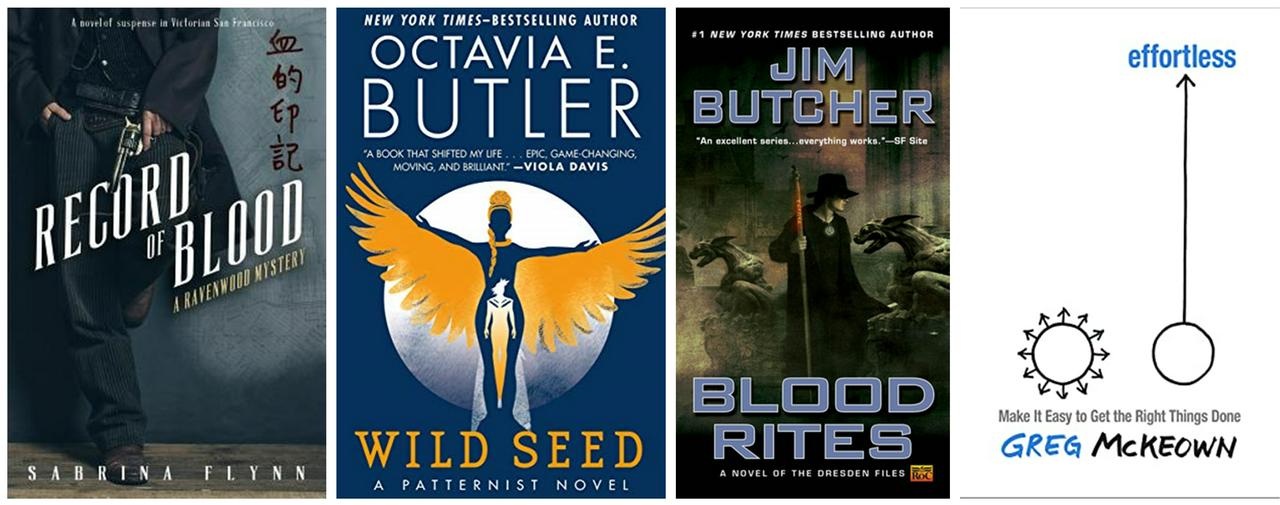What I read in April 2022

Warbreaker (Warbreaker #1) by Brandon Sanderson, 656p: This was my first time reading Sanderson and it’s clear he is a great storyteller. It felt a little YA to me, which is not a bad thing, but sometimes it seemed like the book didn't know if it was going to be an adult or a YA story. Nice world-building: the author really takes time to develop the world and bring it to life, without making it boring. The high point of this book was the Magic System based on colors and Breaths. It's intricate and interesting. I like it when magic has rules, restrictions, and costs to the user. There are some good plot twists that caught me totally by surprise.
100 Things We've Lost to the Internet by Pamela Paul, 288p: I listened to the audiobook and it’s basically a journey through things we used to do before the Internet. It’s funny and light. But I felt it got a little repetitive towards the end.
The Consuming Fire (The Interdependency #2) by John Scalzi, 320p: The second book of the series and very enjoyable, like all Scalzi’s books. We learn lots of secrets about how The Interdependency was created and the Memory Room. There are cool AIs, conspirators, palace intrigues, plot twists, and people getting arrested. It ends in a cliffhanger so I had to jump to the third book right away.
The Last Emperox (The Interdependency #3) John Scalzi, 336p: I thought it was a satisfying end to the trilogy. Discoveries are made, very important people get killed, and more plot twists making the story super engaging. I loved the characters in this series, and also the sci-fi ideas: with star systems risking being disconnected from the rest of the world, how to save everybody? How to save millions of people from a natural disaster? How to avoid the ones in power from being selfish and only saving themselves? I had lots of fun with this series.
The 5th Gender (Tinkered Stars) by G.L. Carriger, 222p: A cozy murder mystery in a spaceship with humans trying to understand aliens and vice-versa. And a romance between a queer detective and a lavender alien with hair tentacles. It plays with the idea of gender and sexual diversity. It’s cute and light-hearted. Warning: It has explicit sexual content.
Thoughts? Discuss... if you have a Write.as account or Reply by email
By Noisy Deadlines Minimalist in progress, nerdy, introvert, skeptic. I don't leave without my e-reader.










